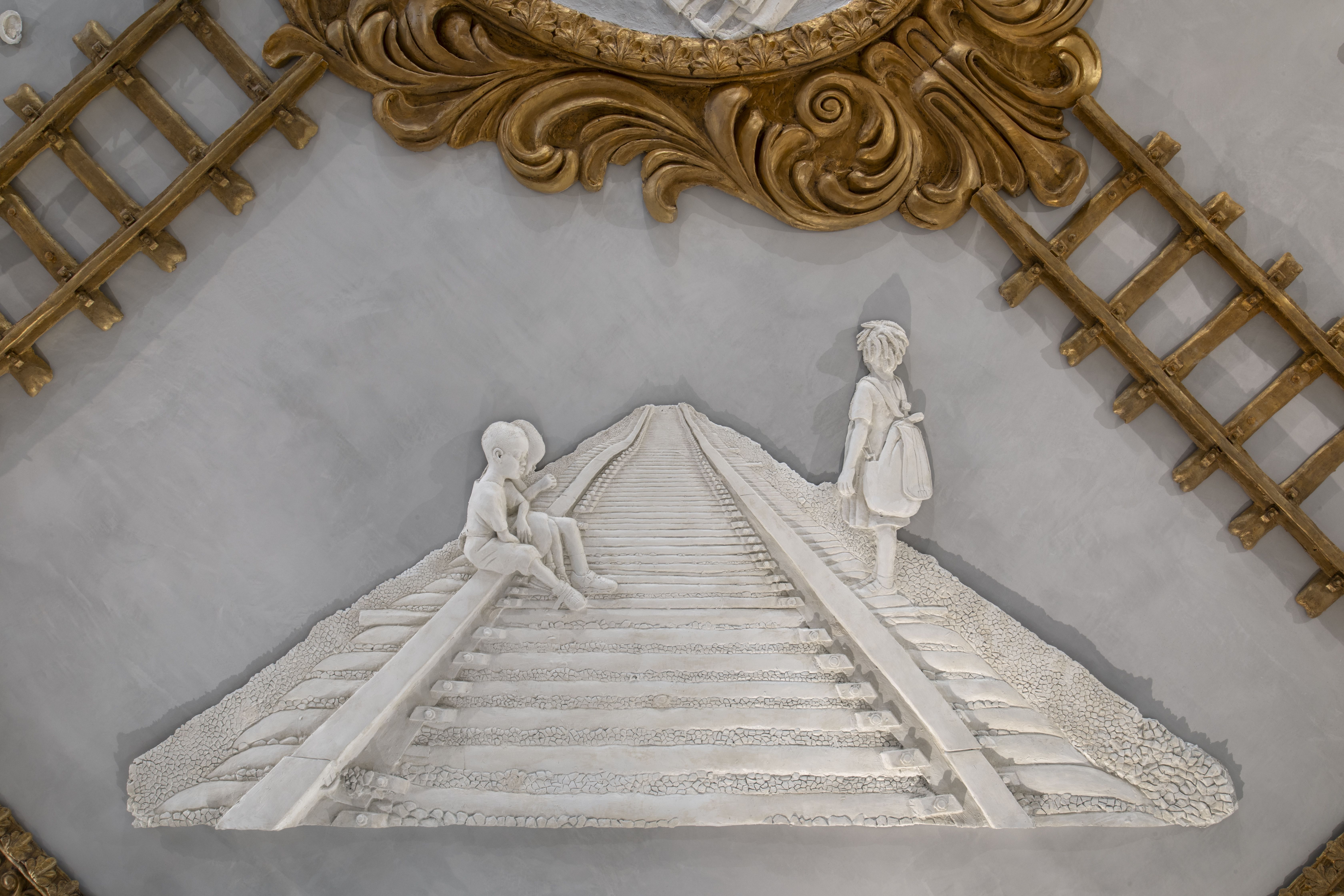
Yes we can
Ibrahim Mahama
Ibrahima Lo
moderator Adriana Rispoli
September, 9, 2024, 7 pm
Free entrance
Yes we can - public talk between the Ghanaian artist Ibrahim Mahama, one of the protagonists of the Janus exhibition currently underway, and Ibrahima Lo, a young Senegalese/Venetian writer and human rights activist, who for a few months worked in Palazzo Diedo as cultural mediator.
The meeting will be moderated by the curator of Palazzo Diedo, Adriana Rispoli.
_
Ibrahim Mahama’s work is currently featured in Palazzo Diedo’s inaugural exhibition, Janus. The permanent work, Three Little Birds (2023) takes inspiration from visual materials around the artist's studio Red Clay in Ghana. From school pupils witnessing the building of a railway line to families using the laid infrastructure of the line as a platform for a family portrait, the lines and production system around it establish creative platforms for reimagining the body in relation to history. The work reimagines the prevailing conditions of a given society while proposing future forms.
Ibrahim Mahama’s artistic practice is characterised by the use of materials collected from urban environments - wood remnants, paper documents and jute sacks - which he manipulates and transforms to explore themes such as the phenomenon of globalisation and migration and the trade in goods. The materials are stitched together like tapestries and draped over architectural structures often related to consumer societies. Mahama says, "I am interested in how crisis and failure are absorbed into this material, with a strong reference to the global transaction and the functioning of capitalist structures". In Mahama's work, jute sacks are thus used as a metaphor for the fragility of Ghana's commercial markets. His works are often made in collaboration with Ghanaian citizens, artists, architects and technicians.
Ibrahima Lo has also worked at Palazzo Diedo as a cultural mediator. Lo lost his mother at 10 and his father at 15, and as an only child decided to leave Senegal to fulfil his dreams. He found the ‘easy’ trip to Europe he’d been told of to be much more brutal. Having crossed the desert and being incarcerated, moving around several prisons, Lo crossed the sea in a rubber dinghy carrying 120 migrants and landed in Italy. First in Bari, then Puglia, Belluno and finally in Venice where he settled.
Lo published his autobiography, Pane e Acqua: Dal Senegal all’Italia passando per la Libia (Bread and Water: From Senegal to Italy via Libya), in 2021. The book became one of the stories that inspired Matteo Garrone’s 2023 film Io capitano (I Captain). In 2024 Lo published his second book, La mia voce – Dalle rive dell’Africa alle strade d’Europa (My voice – From the shores of Africa to the streets of Europe). Both of Lo’s books were published by Villaggio Maori. He is also visiting schools and universities to talk to students and is meeting with magistrates, representatives of European institutions, and filmmakers to discuss his experience.